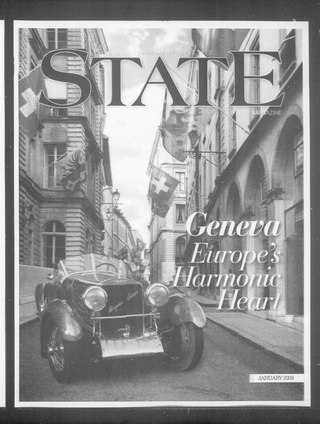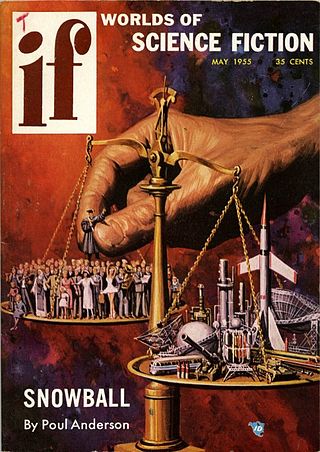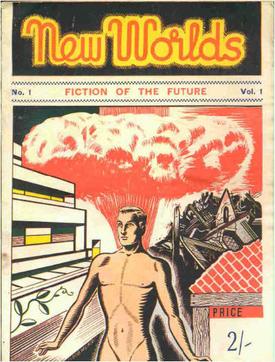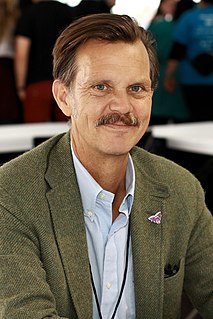External links
- Online-magazine (in Turkish)
- English equivalent of the magazine
Davetsiz Misafir (The Uninvited Guest) is Turkey's unique magazine of science-fiction, politics and criticism.
It was founded in 2002 and published as a non-profit publication by students from social and political science departments of Boğaziçi University. Davetsiz Misafir is now Turkey's best known science-fiction, politics and criticism magazine with its writers composed of students, men of letters, scientists, academics, feminists, anarchists, activists and even prisoners from all over the country. It includes articles concerning politics, post-structuralism, anarchism, feminism, anti-militarism, independent cinema, and arts. Between 2002 and 2005 the magazine was published seasonally and distributed nationwide. The first Turkish translation of Donna Haraway's A Cyborg Manifesto appeared in the 9th issue of Davetsiz Misafir magazine. Striking interviews with famous writers, thinkers and activists such as Noam Chomsky, Jean Baudrillard, the Unabomber, Arthur Kroker, J. G. Ballard, Peter Sloterdijk were published during this period. After the publication of the 10th issue of the magazine, in 2006 Davetsiz Misafir was converted into an online magazine.

Joanna Russ was an American writer, academic and feminist. She is the author of a number of works of science fiction, fantasy and feminist literary criticism such as How to Suppress Women's Writing, as well as a contemporary novel, On Strike Against God, and one children's book, Kittatinny. She is best known for The Female Man, a novel combining utopian fiction and satire, and the story "When It Changed".

A magazine is a periodical publication, generally published on a regular schedule, containing a variety of content. They are generally financed by advertising, purchase price, prepaid subscriptions, or by a combination of the three.

A science-fiction fanzine is an amateur or semi-professional magazine published by members of science-fiction fandom, from the 1930s to the present day. They were one of the earliest forms of fanzine, within one of which the term "fanzine" was coined, and at one time constituted the primary type of science-fictional fannish activity ("fanac").

If was an American science fiction magazine launched in March 1952 by Quinn Publications, owned by James L. Quinn.

Amazing Stories is an American science fiction magazine launched in April 1926 by Hugo Gernsback's Experimenter Publishing. It was the first magazine devoted solely to science fiction. Science fiction stories had made regular appearances in other magazines, including some published by Gernsback, but Amazing helped define and launch a new genre of pulp fiction.

Interzone is a British fantasy and science fiction magazine. Published since 1982, Interzone is the eighth-longest-running English language science fiction magazine in history, and the longest-running British science fiction (SF) magazine. Stories published in Interzone have been finalists for the Hugo Awards and have won a Nebula Award and numerous British Science Fiction Awards.

New Worlds was a British science fiction magazine that began in 1936 as a fanzine called Novae Terrae. John Carnell, who became Novae Terrae's editor in 1939, renamed it New Worlds that year. He was instrumental in turning it into a professional publication in 1946 and was the first editor of the new incarnation. It became the leading UK science fiction magazine; the period to 1960 has been described by science fiction historian Mike Ashley as the magazine's "Golden Age".

A literary magazine is a periodical devoted to literature in a broad sense. Literary magazines usually publish short stories, poetry, and essays, along with literary criticism, book reviews, biographical profiles of authors, interviews and letters. Literary magazines are often called literary journals, or little magazines, terms intended to contrast them with larger, commercial magazines.
Crawdaddy was an American rock music magazine launched in 1966. It was created by Paul Williams, a Swarthmore College student at the time, in response to the increasing sophistication and cultural influence of popular music. The magazine was named after the Crawdaddy Club in London and published during its early years as Crawdaddy!.

A science fiction magazine is a publication that offers primarily science fiction, either in a hard-copy periodical format or on the Internet. Science fiction magazines traditionally featured speculative fiction in short story, novelette, novella or novel form, a format that continues into the present day. Many also contain editorials, book reviews or articles, and some also include stories in the fantasy and horror genres.
Locus: The Magazine of The Science Fiction & Fantasy Field, founded in 1968, is an American magazine published monthly in Oakland, California. It is the news organ and trade journal for the English-language science fiction and fantasy fields. It also publishes comprehensive listings of all new books published in the genres. The magazine also presents the annual Locus Awards. Locus Online was launched in April 1997, as a semi-autonomous web version of Locus Magazine.

Extrapolation is an academic journal covering speculative fiction, established in 1959. It was the first journal in its field and is published by Liverpool University Press.

Boston Review is an American quarterly political and literary magazine. It publishes political, social, and historical analysis, literary and cultural criticism, book reviews, fiction, and poetry, both online and in print. Its signature form is a "forum", featuring a lead essay and several responses. Boston Review also publishes an imprint of books with MIT Press.

Christopher Brown is an American author, who formerly wrote under the name Chris Nakashima-Brown,and is known for writing science fiction.

Albedo One is an Irish horror, fantasy and science fiction magazine founded in 1993 and currently published by Albedo One Productions.
Dartmouth College and its students publish a number of journals, reviews, and magazines, including the Aegis and the Dartmouth Law Journal, a nationally recognized law publication run by undergraduate students.

Harvard Review is a biannual literary journal published by Houghton Library at Harvard University.
Tardu Flordun is a Turkish actor.

Brazilian science fiction has been a part of Brazilian literature since the mid 19th century. The first works of Brazilian Science Fiction emerged in the decades following Brazil's independence. Brazilian science fiction has its roots in authors such as Augusto Emílio Zaluar in the novel O Doutor Benignus and Machado de Assis in the short story O Imortal (1882). The genre grew in popularity over the 20th century, reaching its first “golden age” in the late 1950s, bolstered by the work of publisher Gumercindo Rocha Dorea. Following the end of the military dictatorship in 1985, the genre has witnessed a renaissance, with an influx of new writers and diverse influences reshaping the genre